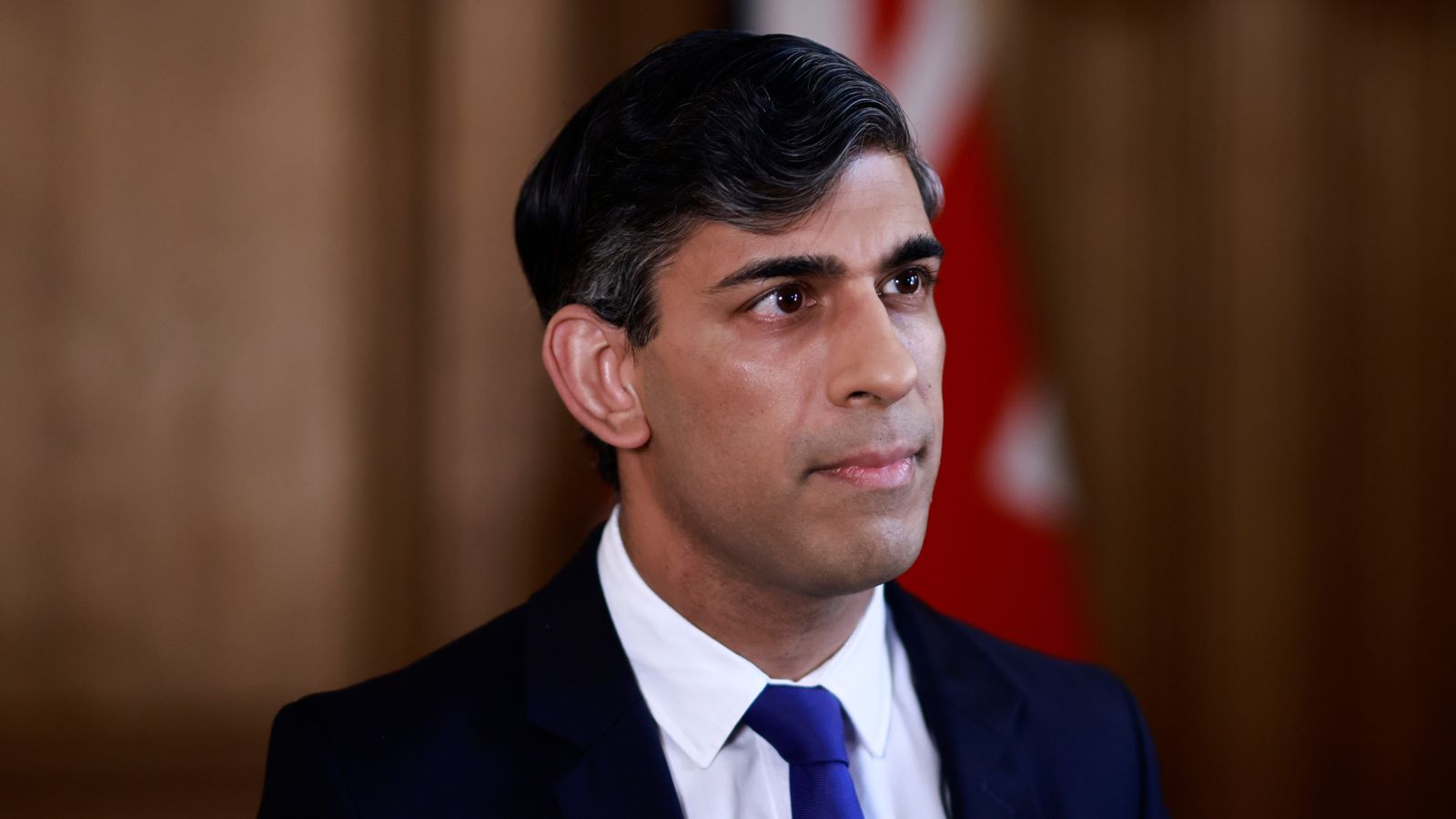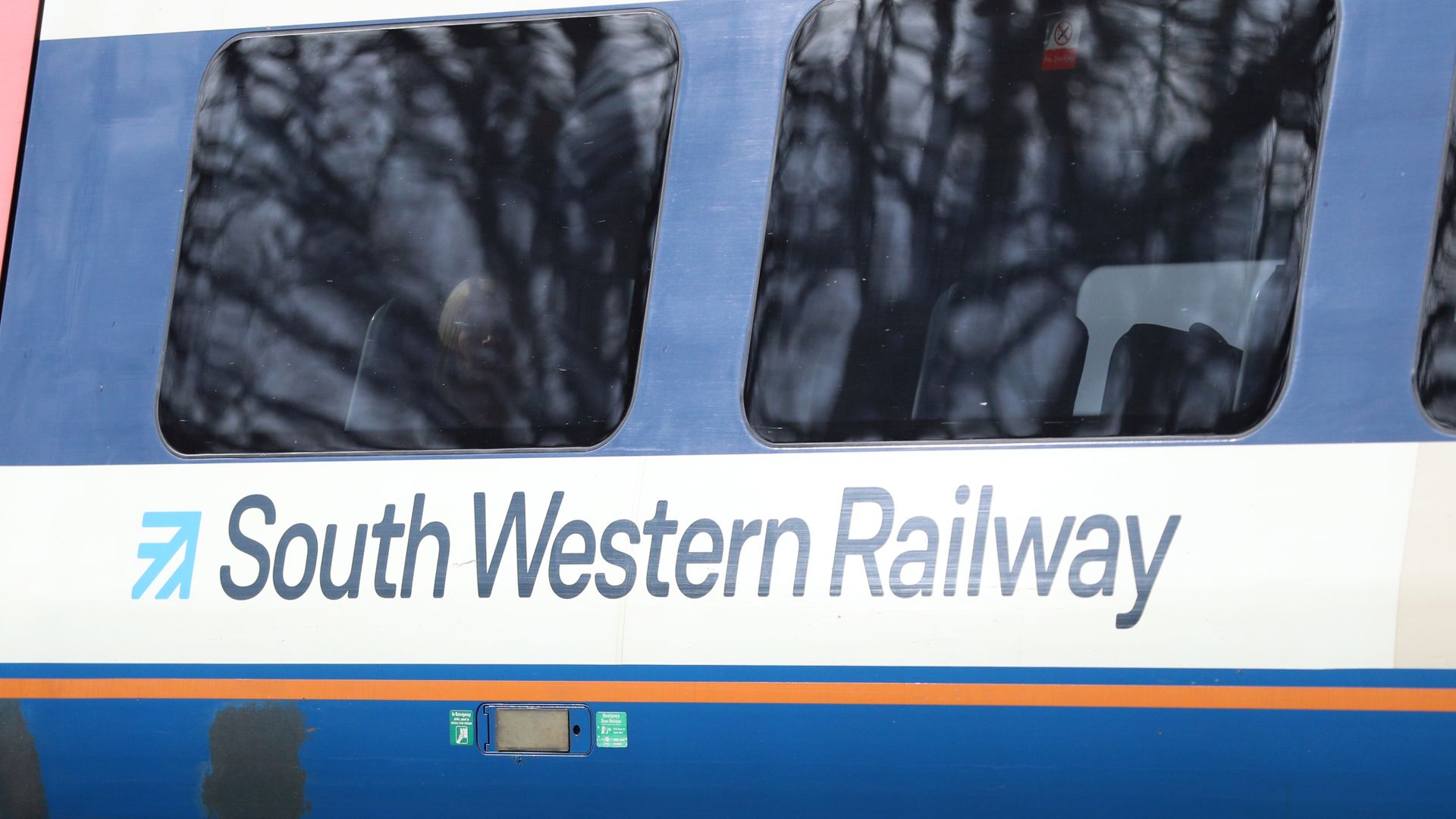MPs return to Westminster today after two weeks away, to the possibility of dangerous escalation in the Middle East.
But this is a week the prime minister will also need to avoid danger domestically if he is to see through some of the key policies on which his political survival depends.
One is the legislation to declare Rwanda a safe country, which Downing Street expects will finally receive royal assent this week.
It holds the prospect of finally sending some failed asylum seekers on planes there, which the government have trumpeted as a deterrent to small boat crossings.
Please use Chrome browser for a more accessible video player
Nearly two years since it was announced by Boris Johnson, many Tories remain sceptical that it can happen at all – there could be another intervention by the European Court of Human Rights which blocked it last time by issuing an interim injunction. Or that it can happen at a scale which would convince voters it has the potential to be a deterrent, and shift the dial politically.
But passing it would be a key moment for the prime minister and his allies, who still hold out hope – despite the polls – that the Conservatives can start to turn things around.
Read more:
Adam Boulton – Is Great Britain really that great?
Minister can’t say if airline found for Rwanda scheme
Graham Stuart: Energy minister stands down from government post to focus on constituency
Boris Johnson brands Rishi Sunak’s smoking crackdown ‘nuts’
Rishi Sunak and Tory MPs at risk of election wipe out could keep seats over voter ID confusion, poll suggests
Be the first to get Breaking News
Install the Sky News app for free
The next test is the second reading – a vote on the principles – of the prime minister’s controversial smoking and vaping legislation.
Announced as the surprise centrepiece of last year’s party conference, it is essentially a ban on smoking for anyone over the age of 14 – by raising the smoke age by a year every year.
Several Conservatives have publicly questioned its workability and while it has Labour support and will pass; a sizeable rebellion of Tory MPs could spell danger for the prime minister’s authority.
This is a week of key economic news too, with CPI inflation figures on Wednesday predicted to show a further fall from 3.4% to as low as 3.1%; inching closer to the Bank of England’s target of 2%.
The Conservatives’ general election hopes hinge on the economic narrative. Before the March Budget, Rishi Sunak told a conference that voters were starting to see “the green shoots of recovery” and the economy had turned a corner. That’s what the Tories’ hopes hinge on.
But despite announcing cuts to national insurance for 27 million people, the Conservatives’ dire position in the polls has barely moved. A steady stream of Tory MPs are throwing in the towel.
Please use Chrome browser for a more accessible video player
There are times when dangerous moments in foreign affairs rally a political party behind its leader at a tough time. But a group of discontented Tories are looking to the local elections on 2 May as a moment to move against Mr Sunak if he loses swathes of Conservative councillors, as is predicted.
That’s two weeks away, and this is a key week for showing that on small boats, the economy and his own priorities such as smoking, he can make some headway.
Developments in the Middle East could also swing the other way. Today the prime minister is likely to make a statement about the actions of UK forces in thwarting Iranian attacks.
But it could also pose difficult questions for him, including louder calls for more defence spending in the UK – now uniting a vocal group of Tories and Labour.





